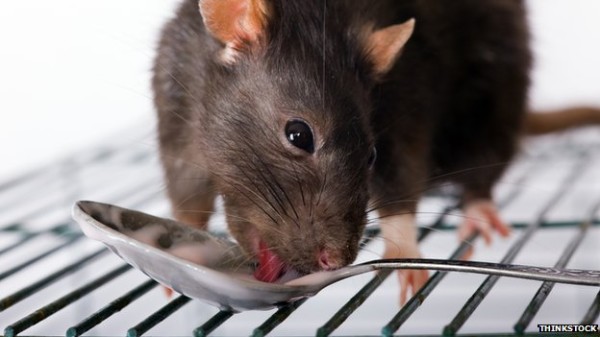It seems that barely a day goes by in China without news of yet another food safety scandal.
But the latest case – even by Chinese standards – was truly stomach-churning.
Hundreds of people were arrested after passing off rat meat as lamb.
Perhaps, unsurprisingly, the scandal has given rise to a round of stories about rodents.
I heard one anecdote about a restaurant in southern China that serves up rat meat dishes. Believe me these establishments do exist.
At this particular restaurant, the owners reassured the customers their rats had been caught in the countryside and not in the sewers.
Now, whether the story is true or not, it gives you a flavour of public concern over food safety.
When you eat at cheap restaurants – or roadside stalls for that matter – you are always left with that queasy feeling you may have consumed something you did not order.
My wife recently had lunch at a restaurant and discovered a stone in her soup and then a piece of scrubbing brush in her main course. When I asked why she had not complained, she said she did not want to spoil the meal for her friends.
The irony is that people in China are now eating more than ever before but quality remains elusive.
Obesity, once unheard of, is now becoming an issue.
There has been the largest wave of migration in human history here: tens of millions of rural migrants have poured into the cities to fuel the country’s remarkable economic growth.
The journey from the farms to the factories in the last couple of decades has given rise to a vast food supply chain catering for China’s urban population.
But the food industry here is often filthy and even downright criminal.
Farmers drown vegetables in pesticides; businesses pump cattle full of steroids; and corrupt officials – after taking their cut – often certify questionable food as safe.
It is little wonder then that people are concerned.
One weekend I joined some city slickers who had become part-time farmers.
The PR consultants, teachers and computer programmers juggled their iPhones and spades at an organic farm on the outskirts of the capital.
Glistening with sweat, they said their weekend workout was all about ensuring the quality of the produce.
For most people though a return to the land simply is not feasible.
So the Chinese middle class – along with many foreigners – buy their meat from Australia and milk from New Zealand.
With so much mistrust, those with the cash plump for trusted brands.
But if there is one issue that provokes anger here more than most it is formula baby milk.
Back in 2008 a scandal of stunning proportions unfolded in homes across the country.
Hundreds of thousands of babies became sick after drinking contaminated formula. Several of them died.
The authorities initially suppressed the scandal because they did not want bad news breaking before the Beijing Olympics.
The PR consultants, teachers and computer programmers juggled their iPhones and spades at an organic farm on the outskirts of the capital.
Glistening with sweat, they said their weekend workout was all about ensuring the quality of the produce.
For most people though a return to the land simply is not feasible.
So the Chinese middle class – along with many foreigners – buy their meat from Australia and milk from New Zealand.
With so much mistrust, those with the cash plump for trusted brands.
But if there is one issue that provokes anger here more than most it is formula baby milk.
Back in 2008 a scandal of stunning proportions unfolded in homes across the country.
Hundreds of thousands of babies became sick after drinking contaminated formula. Several of them died.
The authorities initially suppressed the scandal because they did not want bad news breaking before the Beijing Olympics.




Leave a reply